My Dog is Not Eating: Discover Why and What You Can Do About It


Ah, the age-old situation that every dog owner dreads: “Why is my dog not eating?” It’s a concerning sight when your furry friend turns their nose up at their bowl, and it’s natural to wonder if something’s amiss.
Fear not, dear pet parent, for there are numerous potential reasons behind this behavior, and understanding them is the first step toward finding a solution. In this article, we will explore some of the most frequent causes behind a dog’s lack of appetite and provide insights on how to address them.
Common Reasons Why Your Dog is Not Eating
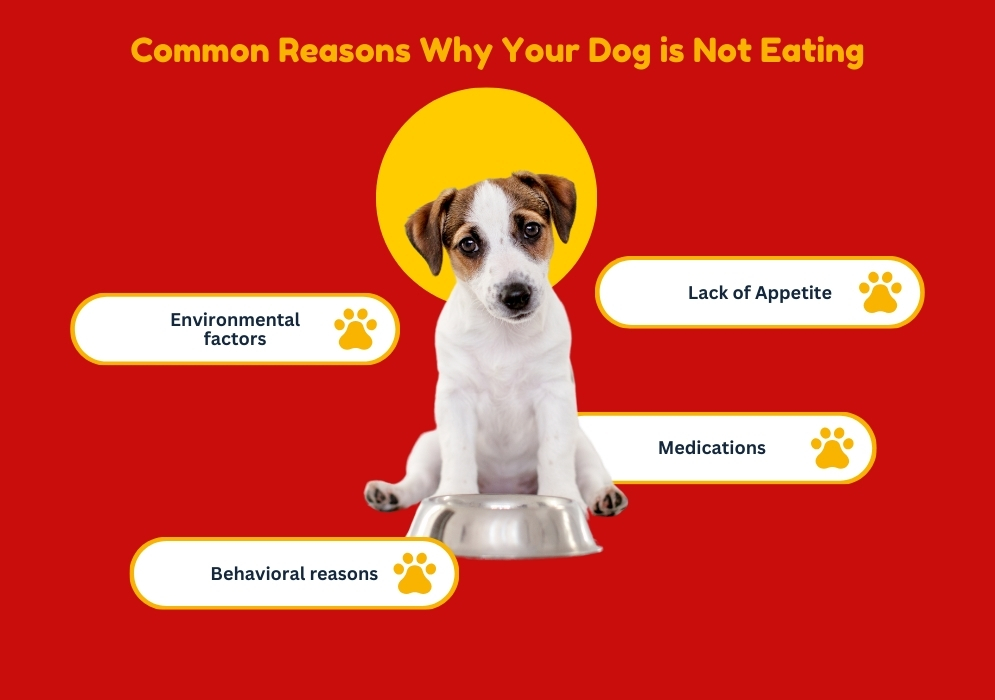
Whether your furry friend is usually a voracious eater or a bit of a picky one, a sudden loss of appetite is always a cause for concern. There are numerous reasons why your dog might not be eating, ranging from minor issues to more serious health concerns.
Knowing about these causes will help you to make informed decisions. Here are some common reasons why your dog may not be eating:
Lack of Appetite
One of the most common culprits is a simple lack of appetite. Just like humans, dogs can experience fluctuations in their desire for food due to various factors, such as changes in routine, stress, or even boredom with their current diet. Sometimes, it’s as simple as your pup being a picky eater or holding out for a tastier treat.
However, in some cases, lack of appetite can be due to health issues such as dehydration and digestive problems to liver and kidney disease. Dental issues, such as tooth decay or gum disease, can make the act of chewing and eating painful, deterring your pup from indulging in their meals.
Similarly, digestive problems like inflammatory bowel disease, pancreatitis, or intestinal blockages can cause discomfort and nausea, leading to a loss of appetite. If your dog has not eaten for 24 hours, you should take them to the vet.
Health issues that can cause loss of appetite in dogs are:
Environmental Factors
Another possible explanation lies in the environment. Dogs are creatures of habit, and any disruptions to their surroundings or feeding routine can throw them off.
A new home, a change in their bowl’s location, or even a noisy environment during mealtime can all contribute to a reluctance to chow down.
While a temporary lack of appetite may not cause immediate concern, prolonged refusal to eat can signal an underlying health issue.
Numerous medical conditions can contribute to a decreased appetite in dogs, ranging from dental problems and digestive disorders to more serious ailments like liver disease, kidney failure, or even cancer.
Medications
Certain medications or treatments, like chemotherapy, can also have the undesirable side effect of suppressing your dog’s appetite. Additionally, conditions that cause pain or discomfort, such as arthritis or injuries, can make the act of eating less appealing.
Behavioral reasons
Aside from physical factors, there are also behavioral reasons why your dog may be turning up their nose at their food bowl. Stress, anxiety, or fear can all contribute to a loss of appetite, as can major life changes like the addition of a new family member (furry or human) or a recent move.
In some cases, a dog’s refusal to eat can be a form of attention-seeking behavior or a manifestation of separation anxiety. If your pup associates mealtime with your departure or absence, they may choose to skip their food as a way to express their distress.
It’s also important to consider your dog’s age and life stage. Puppies and senior dogs may have different nutritional needs and preferences, and their appetites can fluctuate accordingly.
Tips for Encouraging Your Dog to Eat
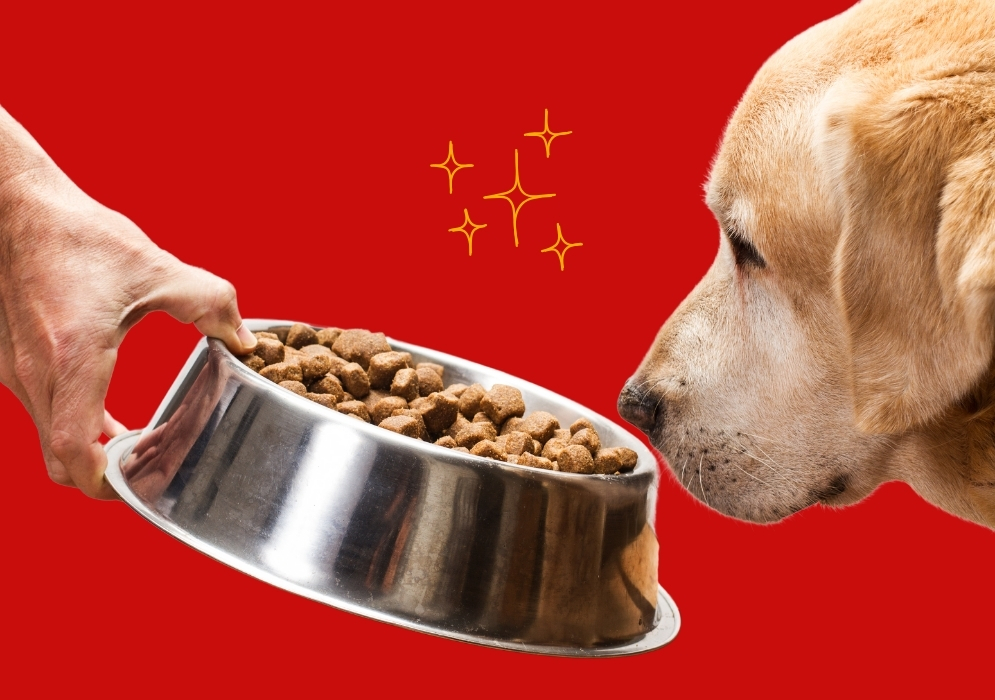
If your dog’s lack of appetite is a temporary phase, there are several strategies you can employ to entice them back to their bowl:
- Make mealtime more appealing: Try warming up their food to release more enticing aromas, or add a tablespoon or two of low-sodium broth or a sprinkling of grated cheese to make it more palatable.
- Change up the routine: If your dog seems bored with their current feeding routine, try switching up the location or time of their meals, or even the bowl itself.
- Offer smaller, more frequent meals: Some dogs may prefer to graze throughout the day rather than consume a large meal all at once.
- Engage their senses: Play with your dog before mealtime to stimulate their appetite, or try hand-feeding them to make the experience more interactive and rewarding.
- Consider a different diet: If your dog’s lack of interest persists, it may be time to explore a new type of food or a different protein source to reignite their taste buds.
Home Remedies for Improving Your Dog’s Appetite
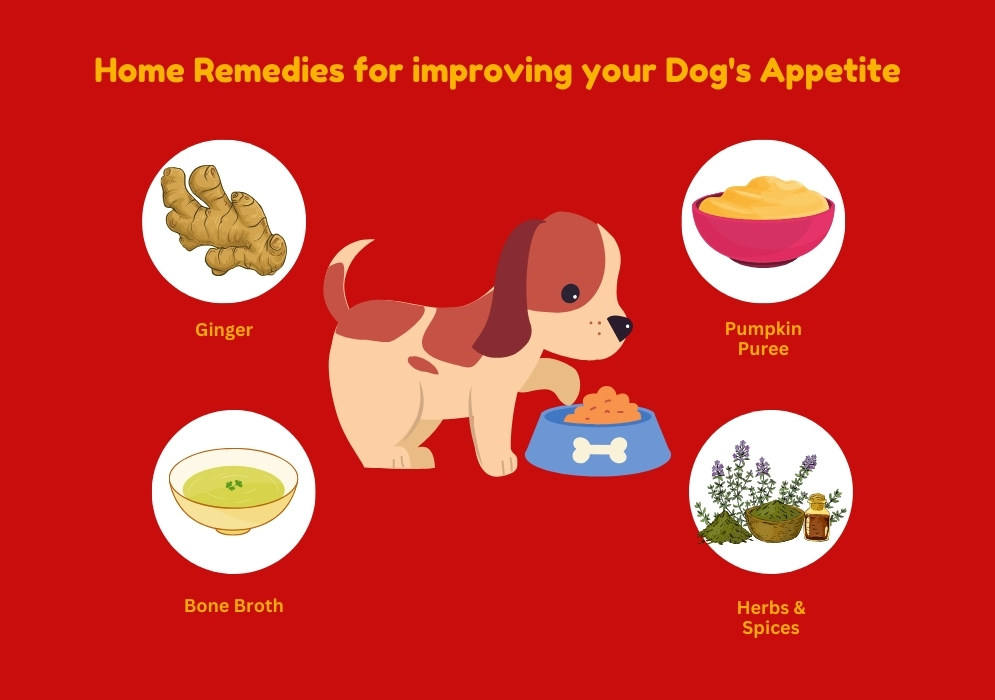
While consulting a veterinarian is essential for persistent appetite issues, there are also some safe and natural home remedies you can try to help stimulate your dog’s appetite:
- Ginger: This natural anti-nausea remedy can help settle an upset stomach and potentially increase appetite.
- Pumpkin puree: Rich in fiber and nutrients, a spoonful or two of plain, unsweetened pumpkin puree can aid digestion and potentially stimulate hunger.
- Bone broth: Simmering bones in water creates a nutrient-rich broth that can entice dogs and provide additional hydration.
- Herbs and spices: Certain herbs and spices like parsley, rosemary, and ginger can add appealing aromas and flavors to your dog’s food, potentially increasing its appeal.
Remember, while these home remedies can be safe and effective for some dogs, it’s always best to consult with your veterinarian beforehand.
My Dog is Not Eating: When to Consult a Veterinarian?
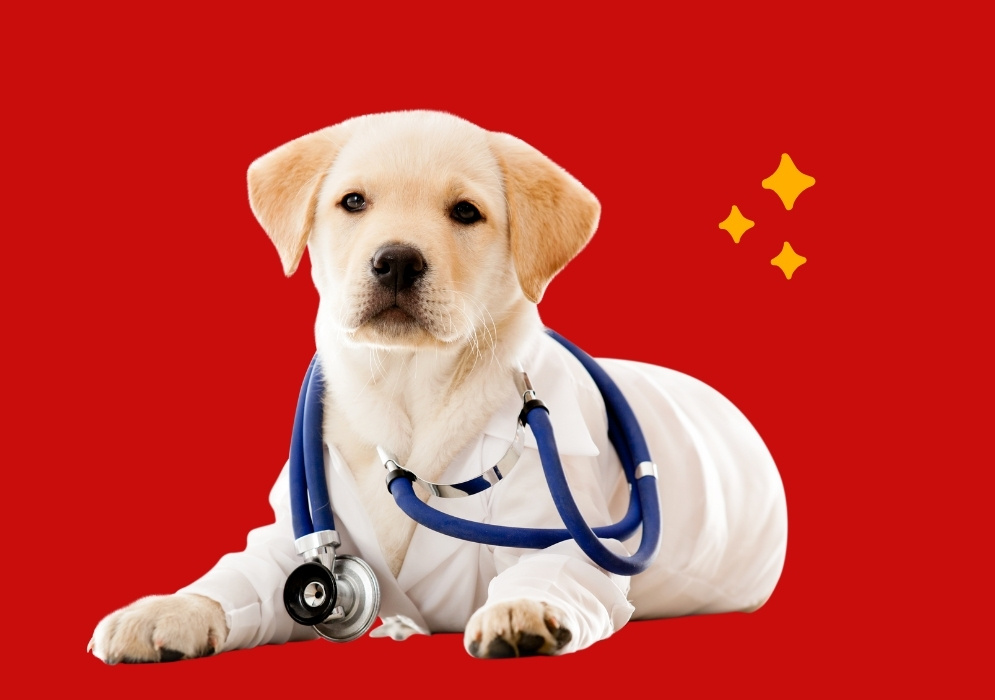
While a temporary loss of appetite may not cause immediate alarm, prolonged refusal to eat warrants a visit to your trusted veterinarian. If your dog hasn’t eaten for more than 24 hours, or if their lack of appetite is accompanied by other symptoms like vomiting, diarrhea, lethargy, or weight loss, it’s crucial to seek professional medical advice.
Your veterinarian can perform a thorough examination and run any necessary tests to identify and address any underlying health issues that may be contributing to your dog’s loss of appetite.
They can also provide guidance on dietary adjustments, appetite stimulants, or other interventions to help get your pup back on track. If you have any questions about your dog’s nutritional needs, your vet is the best person to ask.
Why You Need to Know Your Dog’s Nutritional Needs

Every dog is unique, and their nutritional requirements can vary based on factors like age, breed, activity level, and overall health. It’s essential to understand your furry friend’s specific needs to ensure they’re receiving the appropriate balance of nutrients to thrive.
Puppies, for instance, require a diet higher in calories and protein to support their rapid growth and development, while senior dogs may benefit from a diet tailored to their lower energy levels and potential health concerns.
Active or working dogs may require a diet higher in protein and fat to fuel their increased energy expenditure. In contrast, dogs with certain health conditions, such as kidney disease or diabetes, may require specialized diets to manage their conditions.
Nutrition can also affect your dog’s behavior and mood. A well-nourished dog is likely to be happy, active, and less prone to behavioral issues. It will also help you choose foods that support your digestive health, reducing the risk of gastrointestinal problems like bloating, constipation, or diarrhea.








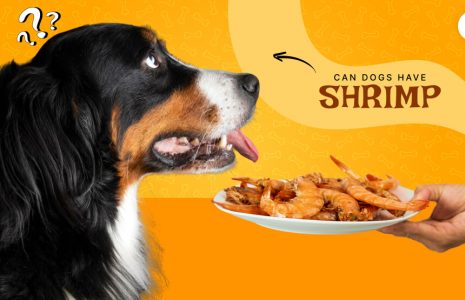
Leave A Comment